Reverse Racism: White privilege invalidates argument
Infographic information showing violence against people of color. Sources: NAACP, Mapping Police Violence
January 9, 2021
“Black privilege.” “#AllLivesMatter.” “If you need to put a color in front of ‘lives matter,’ you’re racist.”
These irrational comments against the Black Lives Matter (BLM) movement only serve to belittle the plight of Black Americans. Systemic racism has always been experienced by people of color throughout the United States. Likewise, the historical impact of slavery has undeniably contributed to striking disparities between white and Black Americans.
Reverse racism is the belief that white people can also face oppression due to their skin color. Many who believe in reverse racism also think that BLM conveys a racist message that white people’s lives do not matter. Because of this, many of them instead choose to say “All Lives Matter,” which disregards the history of oppression African Americans have faced throughout America’s history.
“Some white people want to be recognized and are worried they will be oppressed,” sophomore Sanjana Kanaparthi said. “It’s not racist to focus on the group that is hurting the most.”
Police brutality has disadvantaged Black people for decades, with Black people being three times more likely to be killed by police than white people. Additionally, victims of police shootings rarely get justice, since 98.3% of killings do not result in officers being charged with a crime.
“Black people face a kind of police brutality that white people will never experience,” Kanaprthi said. “They are killed at higher rates, and it’s only because they seem dangerous. White people do the exact same crimes and only get arrested.”
Systemic racism also plays an undeniable role in education. Predominantly white schools receive $23 billion more than predominantly non-white schools, which reduces opportunities in Black communities. These funds often go to schools’ ventilation, plumbing systems and necessary supplies, which means these more predominantly white schools often have better quality buildings, leading to a better quality education.
In addition, racial discrimination in employment makes it more difficult for low-income Black households to escape poverty. Along with this, the reverse discrimination argument leads to many employers being cautious of showing any bias towards people of color. According to HuffPost, job applicants with white-sounding names have a 50% higher chance of getting a callback compared to those with names that sound “less white.” This causes unequal opportunities for Black people to be successful as working adults and adds to the power of white people with threats of lawsuits in the name of reverse racism.
“Racism can be subtle or systemic,” Kanaparthi said. “There are stereotypes, but there are also bad things that happen to people within communities only because they have a darker skin color.”
American popular media revolves around the ideal white person with European features. Films often feature white actors as main protagonists and Black people as the stereotypical criminal. Reverse racism is often argued when there is a belief of unfair treatment toward white people in the film industry. For example, in 2019, creators of musical “Hamilton” faced the threat of lawsuit when white actors were not cast for the role of founding fathers, accusing them as racist for leaning towards people of color as the main cast. That same year, the news of a live action “The Little Mermaid” received backlash for the casting of Halle Bailey, a Black woman, as the part of mermaid Ariel, only because it strayed from the original white mermaid of the animated film.
“It’s a better world for white people,” sophomore Tara Tran said. “They can go outside without seeming suspicious, and beauty standards are centered around western features.”
In his informative YouTube series, “Uncomfortable Conversations with a Black Man,” Black influencer Emmanuel Acho voices his opinion on why the reverse racism argument is invalid, claiming that white people have systemic privilege, institutionalized power and rarely encounter social prejudice. There is evidence that white people have higher homeownership rates and lower poverty rates, which shows just a small part of the privilege they hold.
For centuries, people with pale skin have upheld political and cultural power while discriminating against those with darker complexions. While making rude comments against any race is wrong, individual acts of harassment against white people cannot and should not qualify as racism.
“White people colonized America, enslaved people from Africa and brought them here while writing themselves into history as superior,” Kanaparthi said. “Although they may be a minority in another way, like religion or sexual orientation, white people do have privilege based on their skin color.”
The exclusionist message of the reverse racism argument has sparked many other rebuttals. Supporters of BLM believe in the importance of helping those who need support, not those who are safe and unharmed; in this case, helping African Americans who are disadvantaged. The band-aid goes to the child with the bleeding knee, not to every child on the playground.
“It is a given that all lives matter, as they should, but those who are saying ‘what about me’ aren’t prioritizing the people who are dying first,” Tran said.
It is true that many who believe in reverse racism will still stand for it despite the proven injustice Black people have faced, which is why it is extremely necessary to educate those who may not understand and fight for those who are suffering.
“[BLM] is taking a step forward to let people have their voices be heard,” Tran said. “Everyone should have equal chances and opportunities, just like white people. We can’t keep living in an unfair world.”


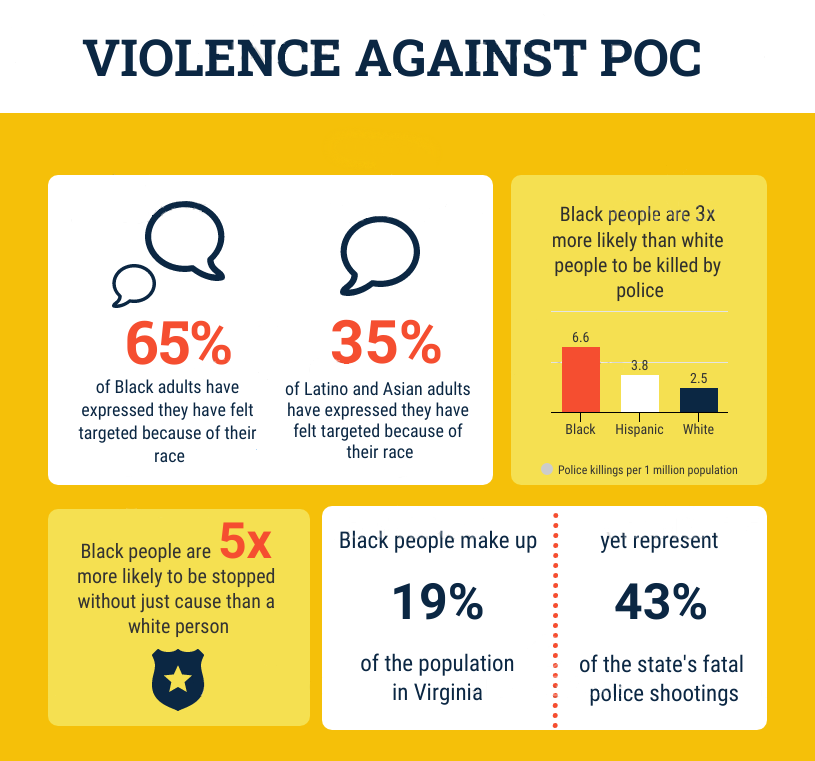
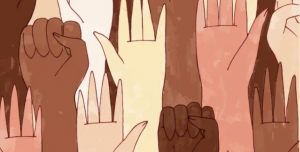
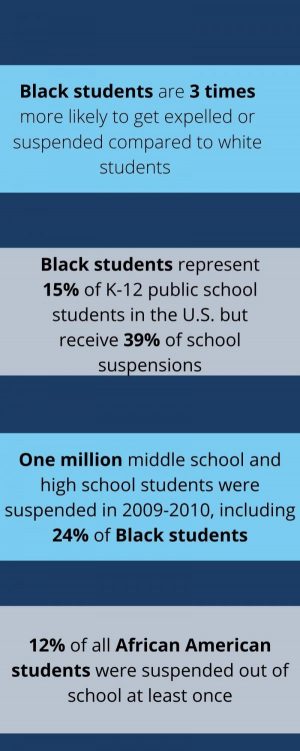
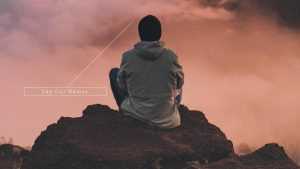
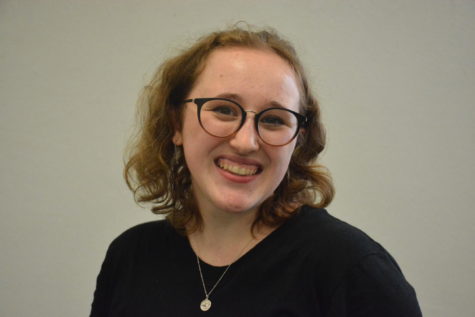
Carly Orson • Oct 26, 2023 at 9:08 pm
Hello, have you considered that blacks are six times as likely to commit a crime as compared with whites? It’s not fair to state that blacks are victims of police brutality more than whites without first considering crime statistics and what races are committing the crimes. I’m not sure you teased that out though and really looked at the stats.
Also, Black Lives Matter, by its very name, implies that blacks believe they don’t matter, on some level, or why would they feel the need to form this group? Whites would be condemned if they organized White Lives Matter.
Cedric tchommo • Nov 15, 2023 at 1:05 pm
Hiya Carly–
First of all, your tone throughout this comment gives me an idea of what kind of person you are exactly (referring to african-americans/black people as “blacks” is an interesting choice of words). So, assuming that you have been raised like this, I will attempt to go easy on you and forgive your condition, stupidity, which you cannot help.
Second of all, I found your first point pretty interesting. Why, you say, is it wrong for the police to assume that black people are likely to commit a crime if statistics back this up? Well, first we should discuss why the number of crimes committed to population is so drastic for african-americans, which is that, in general, they are more disadvantaged. In 2022, the poverty rate for black people was 17.1% (who account for 12.6% of US population), compared to 8.6% for white people (who account for 59.3% of population), so basically it’s doubled. On the other hand, the crime to race ratio in 2020 was 38.4% of violent offenders were black and 58% were white.
Why are more black people in poverty? Well, that’s a whole different issue. Not only are is there a huge gap between the average household income for black people than for white people ($76,057 to $46,073 in 2019), but the wage gap has done nothing but grow between the two races in the last 20 years.
But lets come back to the question of police bias. Even if statistically black people are more likely to commit crimes than white people, the police should be completely unbiased in their assessments. That’s the whole point of being a law officer. How are they supposed to make the right judgement calls if they’d made their assessment right when they saw the person?
Finally, I don’t even understand your last point, there is no White Lives Matter because the majority of white people do not feel that they are discriminated against and statistically aren’t.
Again, I know that you cannot help this condition of yours and I wish you the best of luck in recovering.
Best Wishes.